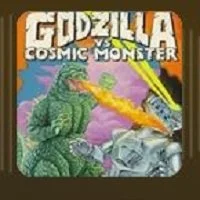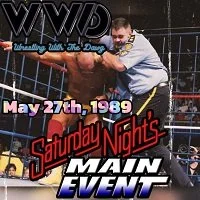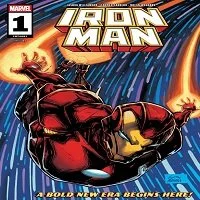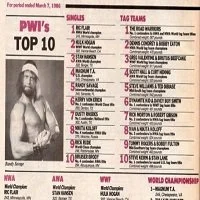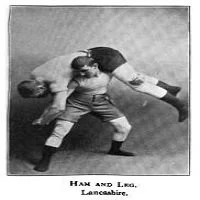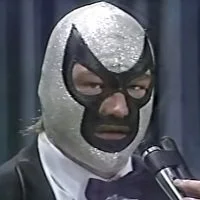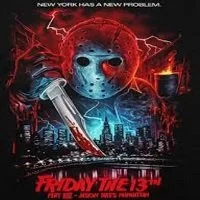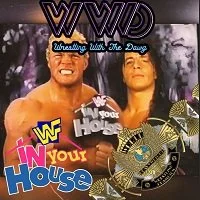Return to WhenItWasCool.com Home Page
Article: A Beginner’s Guide to UFO, Part 1: The 1970s Michael Schenker Era
By Joseph Perry (@JosephWPerryJWP; tastethemilkofchocula.blogspot.com)
UFO
The British group UFO is one of the finest melodic hard rock bands around (yes, UFO is still recording and touring today), though it didn’t break through to the massive level of success enjoyed by such peers as Rush, Judas Priest, Scorpions (from whom they acquired German guitar ace Michael Schenker), and the like. The group was, however, a huge influence on British New Wave of Heavy Metal acts like Iron Maiden and Def Leppard.
UFO had been active as a live and recording act since 1969 and 1970 respectively, blending a blues-based sound with space rock. After releasing and touring behind two studio albums as well as a live long-player recorded in Japan, singer Phil Mogg, bassist Pete Way, and drummer Andy Parker parted ways with guitarist Mick Bolton. They recruited then-18-year-old guitar wunderkind Michael Schenker from German hard rock band The Scorpions (for whom Michael’s brother Rudolf has played for more than 50 years!).
That move elevated UFO to the next level. Schenker’s emotional, technically superb axe stylings were the perfect fit for Mogg’s smoky-but-smooth vocals, Way’s tasty bass, and Parker’s rollicking drums. It should be noted that UFO’s lyrics were a poetic notch or two above the hard-drinking, girl-chasing norm for many hard rockers of the day. Thought the group would sometimes broach those subjects in song, the lyrics were well thought out and never went for the easy rhyme or joke.
UFO
In this first installment of my beginner’s guide to UFO, I have taken on the unenviable task of trying to choose only two tracks from each of the band’s six initial albums with Schenker --- one single track and one deeper cut album track --- so that readers and potential new listeners can get an idea of the band’s progression from basically a power trio with a vocalist to a more full-sounding quartet with a vocalist. I hope you enjoy this crash course on the influential music of one of the best, yet one of the most unsung, melodic hard rock bands in the world. Dig those wild Hipgnosis album covers, while you’re at it, from the heyday of when album covers were cool!
Phenomenon (1974)
UFO made its label debut for Chrysalis with Phenomenon, its third long-player, which was also the first album with then-19-year-old Michael Schenker. The sound here is stripped-down hard rock with the spotlight firmly on the German whiz kid’s powerful, unique guitar stylings.
Single: “Doctor Doctor.” The song builds from a rather quiet opening and once it kicks in, it doesn’t back down.
Album track: “Rock Bottom.” For ardent UFO fans, this urgent live staple is anything but a deep cut, but for newcomers to the band, it’s an absolute must. Schenker’s opening riff is monstrous.
Force It (1975)
With Force It, UFO shows a bit more flair for the tempo changes and dramatic musical builds that will be their trademark. The lyrics also become more thoughtful, as well.
Single: “Shoot Shoot” sees the band in a more straight-ahead vein.
Album track: “Out in the Street” features some early guitar and keyboard interplay from UFO.
No Heavy Petting (1976)
My favorite of UFO’s first three Chrysalis releases, No Heavy Petting sees the group add a keyboard player to form a quintet for the first time. Although Danny Peyronel was only with UFO for this album, his influence on the band’s direction from this record onward is evident, as the group has incorporated keyboards into its songs ever since.
Single: No singles were released from No Heavy Petting. Instead, I’ll recommend “Natural Thing,” another live staple. You shouldn’t need much convincing to listen to the whole song once you hear that blistering opening riff.
Album track: “Martian Landscape.” This is truly a deep cut; it sees UFO in one of its quieter offerings, though it isn’t quite a ballad. Peyronel’s spacey Fender Rhodes opening signals that this UFO track is unlike any of the others that preceded it.
Lights Out (1977)
The band’s U.S. breakout album is also hailed by critics and fans alike as its masterpiece. UFO upped its game here both as musicians and lyricists, producing a long-player chock full of rich, melodic gems that crackle with energy and passion. From the opening chords of the boisterous “Too Hot to Handle” to the raw closing chord of the gorgeously nuanced “Love to Love,” this record is the very definition of “all killer, no filler.” Paul Raymond is a marvelous addition on keyboards and rhythm guitar and his playing is front and center in many songs, including his wonderful piano work on the plaintive ballad “Try Me.”
Lights Out was expertly produced by Ron Nevison, who three years earlier had manned the knobs on Thin Lizzy’s Nightlife album, and who would go on to produce long-players from Michael Schenker Group, Ozzy Osbourne, Kiss, Heart, and Meat Loaf, to name but a few acts. This would be UFO’s highest-charting album in the United States, peaking at number 23. It reached number 54 in its native England.
This is the album with which I discovered UFO. I was a high-school student at the time and had a deal with a local FM radio station with which I could keep dozens of new albums each week if I simply reviewed one or two albums for my school newspaper whenever possible, crediting the station in print. I discovered so many amazing musical acts thanks to that gig, and UFO was one of the top ones. I was also fortunate enough to see UFO on tour for Lights Out when they opened for Rush on the latter’s A Farewell to Kings tour at the Stockton (California) Civic Auditorium. That is a concert that I will remember for as long as I live.
Single: “Too Hot to Handle.”
Album tracks: I have to cheat a bit here and offer two album tracks. There is no way I can not include the band’s signature concert piece “Love to Love.” Describing its complexity and passionate intensity won’t do justice compared with your simply listening to it right now.
The deep cut “Electric Phase” kicks off with another patented Schenker riff, this one distorted and nasty,in a song filled with riffs and fills that would make other bands flush with envy.
Obsession (1978)
This would be Michael Schenker’s final studio album with UFO for 14 years. Although it is arguably the group’s most commercial outing, commercial UFO is heads above a lot of the material that vied for the radio airwaves at the time. “Only You Can Rock Me” was obviously written to be a hit single and a sing-along live-crowd pleaser, but, like the other single from this album, “Cherry,” the song structures are more complex than the average pop rock tune, and the performances are filled with heart.
Obsession, again produced by Ron Nevison, didn’t chart quite as highly as Lights Out did in the States, rising to number 41, but it became the group’s biggest selling album in the U.K. up to that point, reaching number 26.
Single: “Only You Can Rock Me.”
Album track: “Hot ‘n’ Ready.” This track shows that UFO continued to flex its rock muscle mightily as it sought a wider audience.
Strangers in the Night (1979)
This double-live album recorded in the States was once again produced by Ron Nevison, and reached number 42 on the U.S. charts and number 7 on the U.K. charts.
Single: UFO tried giving “Doctor Doctor” another shot as a single, this time with a live recording.
Album track: “Rock Bottom.” Crank this 11-minute Michael Schenker showcase version up and let it wash over you. You will soon see why so many people considered him to be one of the top guitarists in the world at that time.
In the next installment of “A Beginner’s Guide to UFO,” I’ll take a look at the band’s next three albums, on which Paul Chapman stepped in to replace Michael Schenker on guitar. He did so seamlessly and helped UFO achieve their three highest positions for studio long-players on the UK album charts.
Besides contributing to When It Was Cool, Joseph Perry also writes for the retro pop culture website That’s Not Current (thatsnotcurrent.com), the Gruesome Magazine horror movie website (gruesomemagazine.com), and several other print and online film critique magazines.












